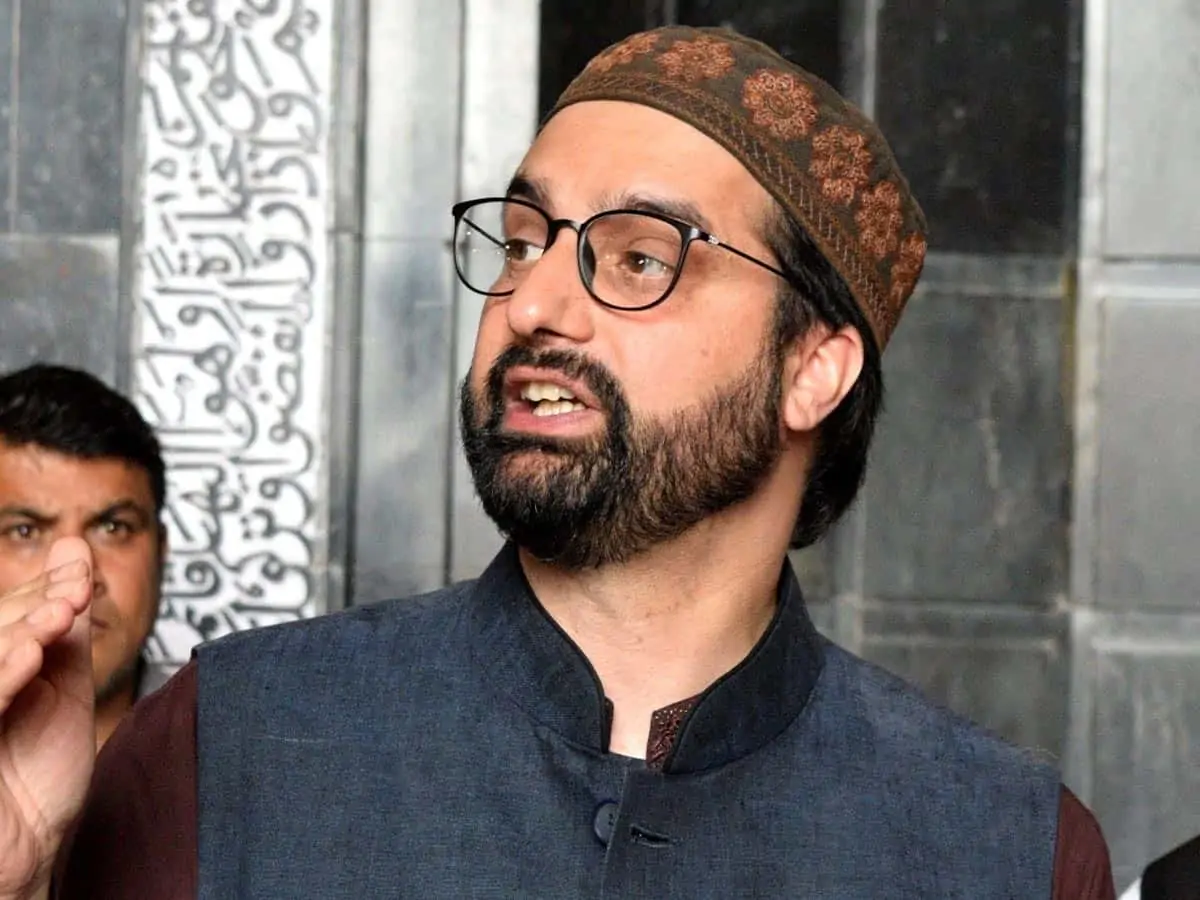Mirwaiz: Injustice Breeds Radicalisation, Dialogue Is the Cure
Javid Amin | Srinagar | November 13, 2025
Kashmir’s chief cleric urges compassion and engagement during meeting with Sri Sri Ravi Shankar
In a significant intervention amid rising tensions in the Valley, Mirwaiz Umar Farooq has warned that injustice, disempowerment, and alienation are key drivers of radicalisation in Kashmir, urging the government to replace coercive policies with meaningful dialogue.
His statement came during a meeting at his Nigeen residence with Sri Sri Ravi Shankar, founder of the Art of Living Foundation, who is visiting Kashmir after seven years.
“Peace and dialogue are the most humane and effective means of resolving differences,”
— Mirwaiz Umar Farooq
Mirwaiz stressed that coercion deepens despair rather than solving conflicts, and only compassion, justice, and respect for human dignity can bring sustainable peace.
Interfaith Dialogue, Compassion & Anti-Drug Outreach
The meeting focused on interfaith harmony, spiritual healing, and anti-drug initiatives — issues both leaders see as essential to rebuilding trust and addressing societal wounds.
Key points from the dialogue:
-
Commitment to mutual understanding between communities.
-
Support for Sri Sri Ravi Shankar’s anti-drug campaigns in the Valley.
-
Appreciation for his upcoming visit to Srinagar Central Jail, aimed at promoting emotional and spiritual rehabilitation for inmates.
-
A shared emphasis on compassion-led engagement as a counter to radical tendencies.
Mirwaiz highlighted the alarming rise in substance abuse and called for community-wide efforts rooted in empathy rather than punishment.
Context: Crackdowns, Detentions & Political Tensions
Mirwaiz’s remarks come at a time when Kashmir is witnessing intensified security operations following the Delhi Red Fort blast.
Recent developments include:
-
Over 600 people questioned in mass detentions across Kashmir.
-
Property attachments under UAPA, including that of former Bar Association president Mian Abdul Qayoom.
-
Renewed political tension, with parties like NC and PDP trading blame over their past alliances and governance decisions.
-
Heightened surveillance and border security amid fears of sleeper cells.
In this backdrop, Mirwaiz’s call for dialogue serves as a counter-narrative to the current security-centric approach—offering a blend of spiritual insight and political reflection.
A Call for Empathy in Times of Fear
Mirwaiz’s message underscores a pivotal idea: radicalisation is not born in a vacuum.
It grows in environments where people feel:
-
unheard
-
marginalised
-
disempowered
-
wronged
Addressing these roots, he argues, requires listening, reconciliation, community healing, and political sincerity.
His meeting with Sri Sri Ravi Shankar — bridging religious, philosophical, and social perspectives — signals an attempt to revive civil society conversations that have faded under years of turmoil.
Why This Matters for Kashmir’s Future
Mirwaiz’s intervention may influence several ongoing debates:
-
Can dialogue return to the centre of Kashmir’s conflict resolution?
-
Will spiritual leadership reshape social healing?
-
Can compassion-based engagement counter youth alienation more effectively than force?
As Kashmir navigates a fragile security environment and rising socio-political anxieties, the message is clear:
Peace can begin only where justice, dignity, and dialogue meet.



